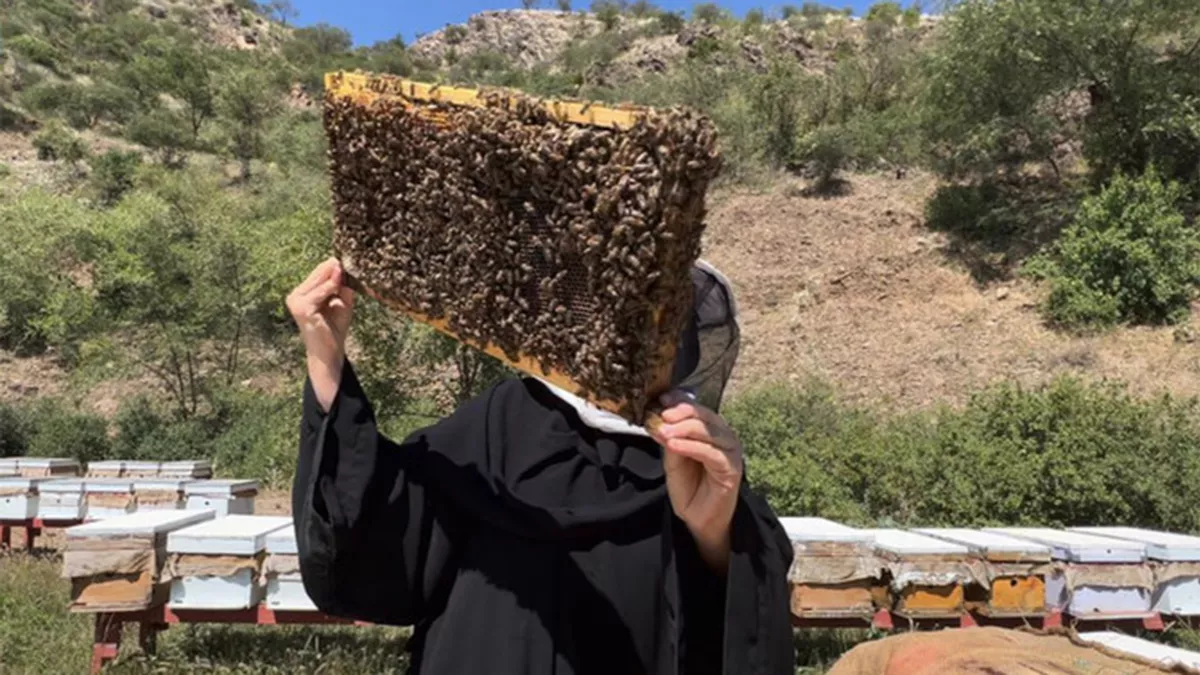The honeybee breeding program led by Saudi Reef is poised to make a substantial impact on bee populations
23 Feb 2024
News
Bee populations stand to benefit greatly from the honeybee breeding initiative, which is being led by the Ministry of Environment, Water, and Agriculture and the Sustainable Agricultural Rural Development Programme "Saudi Reef." By putting the programme into practice, a small number of model beekeepers have seen an astounding 200 percent rise in output.
The "Saudi Reef" programme claims that the increase in productivity is the result of a deliberate decision to increase queen bee rearing inside the programme for breeding and propagation.
A significant contribution has also been made by the adoption of cutting-edge production methods and best practices, such as organic beekeeping and hive management. These methods have produced notable increases in output in a number of the project's model farms, and they are detailed in a pamphlet given to beekeepers.
Building on its achievements, the programme intends to implement programmes aimed at "bee queen breeding and nuclei production" in eight locations, including Madinah, Hail, Tabuk, Asir, Asir, Baha, Makkah, and Jazan.
Every year, 5,000 pure queen bees with high productivity requirements are anticipated from each centre.
This will provide beekeepers the opportunity to increase queen bee breeding and bee colony sizes while maintaining advantageous genetic features for increased output and resistance to environmental stresses and illnesses.
In August of last year, Saudi Arabia revealed an ambitious plan to produce more than 7,500 tonnes of honey yearly as part of the Saudi Reef, with the goal of increasing food security and agricultural self-sufficiency.
